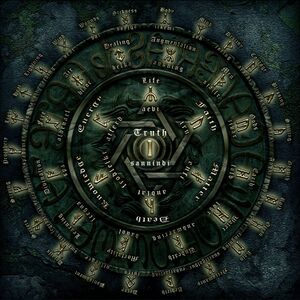WIZARD (system)
A game designed to play the zany wizards of /tg/ threads.
Attributes
- Beard: Represents the most fundamental aspect of corporality. It is rolled for tenacity and physicality as well as for personal grooming.
- Academia: Represents study and knowledge of earthly topics. It is rolled to identify things and write papers.
- Sagacity: Represents wisdom and understanding of the ephemeral, as well as the degree to which that can be pretended at. Roll this to seem wise.
- Splendor: This represents how magnificent and dramatic you are, as well as your material wealth. Roll this to buy things or to act dramatically. You may roll this with a spell to make the spell more aesthetically impressive.
- Eccentricity: This represents your disconnect from reality and the odd habits you've acquired. Roll this to avoid social normalcy. You may roll this with a spell to add small effects which are not represented by any runes.
Each of these is assigned a die value, d4, d6, d8, d10, or d12. These are rolled to do non-magical things.
Runes

As a powerful wizard you have access to magical runes, each of which has a corresponding magical word for you to yell at your foes. These are rolled to do magical magic tricks. Complicated spells involve many runes, and you can add stats to the roll for unusual aesthetic effects. Each rune has a die size corresponding to its position in the concentric rings, as depicted in the picture, going d4, d6, d8 inward, with Truth in the middle being a d20.
Casting
To cast a spell, roll all the dice associated with it. If you're rolling an unopposed spell for shenanigans, then you only need to roll more than one on at least one of the relevant dice to succeed. If a roll is opposed by another wizard or some other magical being, then each rolls their relevant dice, and the spell effect only succeeds if it has results higher than the opponent. Rolling a one on any spell results in backlash, but may not cause the spell to fail, if other dice roll higher and the total value is high enough to allow normal success. GMs, come up with interesting results from these!
Character Creation
You begin the game with 25 points to spend as you will. You buy attributes and runes with points, with costs accroding to the following table.
| Die size | Cost |
|---|---|
| 1d4 | 1 |
| 1d6 | 3 |
| 1d8 | 7 |
| 1d10 | 15 |
| 1d12 | 25 |
| 1d20 | 50 |
Any attribute that you do not upgrade is a d2, also known as a coin. If you don't buy runes you don't have magic, so buy some runes. Both attributes and runes have prerequisites when you're buying dice bigger than a d4. The prerequisite for each rune is at least one of its subset runes, those two nearest it in the ring one out from it. The prerequisite die for each die of an attribute is simply the lower die.
Combat
If attacked by magic, use magic to defend against it. If you fail, roll Beard, and if you get a one, you lose the wizard duel and your enemy's magic takes full effect on you. If this was damaging magic, you are killed on the roll of one and would be shaken but not mechanically effected on any roll other than one. In long-running games, a GM may choose to offer contingent teleports, which would work like Fate Points of other games, and remove a wizard from the scene when he rolls a one on one of these Beard rolls. In that case, the GM should give out two or three each to the party and generally should not give any more for the duration of the campaign.